Alive & Well
Hey thanks for tuning in today to the alive and well podcast. I’m a pastor at Awaken Church in Rome, NY and these are short summarized messages from the sermons I preach each week. It’s my hope and prayer that you find inspiration in something you hear only so that you can live out your life as a fully devoted follower of Jesus empowered by the Holy Spirit
Episodes
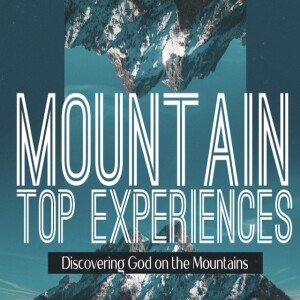
Thursday Jun 12, 2025
Thursday Jun 12, 2025
MOUNT ZION
Today, I want to take you beyond the empty tomb…
Not just back to what Jesus did, but forward into what Jesus is still doing.
Because Easter is not the end of the story — it’s the beginning of a movement.
A movement toward a better mountain.
The tomb was empty so that hearts could be filled.
In Hebrews 12, we’re told something stunning:
“You have come to Mount Zion… to the city of the living God.”
This is a spiritual destination — not just a place on a map, but a place in the heart.
It’s the fulfillment of all God has been doing:
From Abraham and Isaac, to David and Solomon, to Jesus — God has always been calling His people to Himself.
Mount Zion is not a mountain of fear and judgment like Sinai…
It’s a mountain of grace and mercy.
It’s where angels rejoice.
Where the Church gathers in the Spirit.
Where Jesus, our Mediator, speaks a better word — not one of vengeance, but redemption.
Mount Zion isn’t just where resurrection happened…
It’s where resurrection leads.
It’s where the Upper Room was — that little room in Jerusalem, humble and hidden.
It was a place of fear… that became a place of fire.
After the resurrection, Jesus didn’t disappear — He reappeared.
Over 40 days, He taught, He revealed, He transformed.
Then, on the Mount of Olives, He ascended.
But here’s the thing:
The Ascension was not Jesus leaving us — it was Jesus enthroning Himself.
He sat down at the right hand of the Father — because the work was finished.
And from that place, He poured out His Spirit on His people.
And where did the Spirit fall?
Right back at Mount Zion — in that Upper Room — where waiting turned into witnessing.
Because the resurrection doesn’t just change you — it sends you.
So what does this mean for us today?
It means we live like Zion people.
We watch — not with passive eyes, but active faith.
We return — in obedience, even when it’s hard.
We enter — into places of consecration, humility, and transformation.
And we continue — steadfast in prayer, united in purpose.
The early church didn’t manufacture revival…
They built the room for it.
Like a greenhouse — they created the right conditions:
Heat from passion, moisture from prayer, light from truth — and the Spirit brought the growth.
So today, wherever you are —
You’re not just standing in a moment… you’re standing on a mountain.
Not Sinai… but Zion.
Let’s live like we’ve come to Mount Zion.
Let’s build the room.
Let’s keep the fire burning.
I’m so glad you joined me today.
Until next time — keep watching, keep worshiping, and walk boldly as a Zion people.
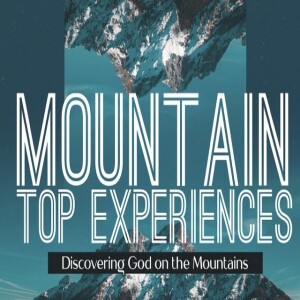
Thursday Jun 05, 2025
Thursday Jun 05, 2025
MOUNT CALVARY
So, today I want to take you for a few moments to a hill called Calvary.
It wasn’t much to look at—a rocky outcrop outside Jerusalem, shaped like a skull. In Latin, it’s Calvaria. In Aramaic, Golgotha. Just hearing those names sent a chill through people’s spines. Everyone knew what happened there. It was the place of execution. The place of shame. The place of death.
It stood as a symbol of Roman power—a public theater of cruelty where criminals were nailed to wood and left to die. But one day, Calvary became something else. On that hill, the Son of God took His final steps… not away from suffering, but toward it. Jesus chose the cross.
The cross wasn’t an accident. It wasn’t a detour in the plan. It was the plan.
That day, three crosses stood on that hill. Three men were crucified. But only one was innocent.
To one side of Jesus hung a man hardened by life—angry, bitter, even in his final breaths. He hurled insults. Mocked the very one who could save him.
On the other side, a different man. A criminal, yes, but also a man suddenly aware—aware of his guilt, aware of who Jesus was. With barely enough breath left, he whispered a prayer: “Jesus, remember me when You come into Your kingdom.”
And Jesus, beaten and bloodied, turned to him and said, “Truly I tell you, today you will be with Me in paradise.”
Think about that. In his dying moments, Jesus wasn’t focused on Himself—He was offering hope. Offering mercy. Offering heaven.
That’s what Calvary is all about.
Jesus didn’t just carry a wooden beam up that hill—He carried our sin. He carried our shame. Our sickness. Our sorrow. Every failure. Every secret. Every burden too heavy for us to bear.
Isaiah said, “He was pierced for our transgressions, crushed for our iniquities; the punishment that brought us peace was upon Him, and by His wounds we are healed.”
And today… the cross still stands.
Not on that hill, not in physical form—but as a symbol, a reminder, a declaration. That no matter who you are, no matter what you’ve done—grace is still available. Forgiveness is still possible. Redemption is still real.
The criminal on the cross couldn’t fix his past. He couldn’t make it right. All he could do was look to Jesus—and that was enough.
Maybe that’s you today. Maybe you feel like you’ve gone too far or waited too long. But hear this: Jesus is still answering desperate prayers. He’s still turning shame into salvation. And He’s still saying, “Today you will be with Me in paradise.”
The cross wasn’t the end of the story. It was the turning point.
Because of Calvary, hope lives. Love wins. And grace flows freely.
So don’t just look at the cross. Come to it. Bring your brokenness, your questions, your fears. And know this: the cross still stands… for you.
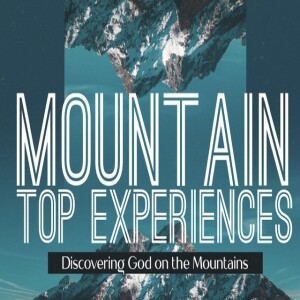
Thursday May 29, 2025
Thursday May 29, 2025
GETHSEMANE
Have you ever stood at a crossroads, facing something you didn’t choose, something painful… and found yourself whispering, “God, is there any other way?”
Welcome to the Garden of Gethsemane.
Nestled at the foot of the Mount of Olives, just across the Kidron Valley from the Temple, this garden was more than a quiet retreat for Jesus—it was a sacred battlefield. A place where prayer collided with pressure… and surrender overcame fear.
It was here that Jesus stepped over the brook of sacrifice—the Kidron stream, stained with the blood of thousands of lambs from the Temple altar. He crossed that stream on His way to become the Lamb of God… the once-for-all sacrifice.
And in that olive grove, under the weight of coming agony, Jesus knelt to pray… and He wrestled with a cup.
Not a cup made of silver or gold—but a spiritual cup… filled with the wrath of God against every sin—past, present, and future. Your sin. My sin. The full weight of guilt and rebellion… and Jesus saw it. He knew what it meant. And still… He said, “Not My will, but Yours be done.”
That prayer didn’t come easily. Luke tells us He prayed in such agony that His sweat became like drops of blood. He wasn’t just praying—He was being pressed. Just like olives in Gethsemane’s ancient press, Jesus was being crushed—spiritually, emotionally, physically. And from that crushing came the first drops of redemptive blood—the anointing for atonement.
Gethsemane was more than a moment. It was a message.
It tells us that surrender isn’t pretending you’re not afraid—it’s trusting God even when you are.
Maybe you’re holding a “cup” in your own life today. A diagnosis. A loss. A calling that feels too heavy. And like Jesus, your prayer has become, “Father, is there another way?”
Friend, hear this: That’s not a prayer of weakness—it’s a prayer of honesty. And what matters most is what comes next: “Not my will, but Yours be done.”
That’s where resurrection begins.
The story of Gethsemane teaches us that there is power in surrender. That victory doesn’t always look like swinging a sword—it sometimes looks like laying it down. Just ask Peter, who tried to fight with the wrong weapons and missed the real battle. Jesus didn’t need a sword. He had already chosen the cross.
And then… there was Judas.
The betrayal. The kiss. The heartbreak of being handed over by someone you loved. But even here, God was not surprised. What was meant for harm, God used for redemption. Judas made a real choice—and God wove even that into His plan.
That’s the mystery and beauty of Gethsemane.
So today, if you feel pressed, betrayed, or burdened by a cup you didn’t ask for—take heart.
Jesus has been there. And He drank every last drop.
Let His prayer become yours today:
“Not my will, but Yours be done.”
Because on the other side of that prayer… is resurrection.
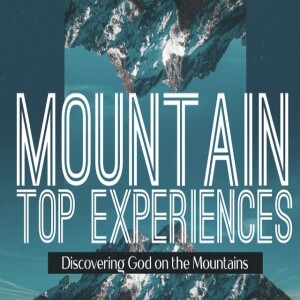
Thursday May 22, 2025
Thursday May 22, 2025
MOUNT OF OLIVES
Today, I want to take you to one of the most sacred and dramatic places in all of Scripture—the Mount of Olives. It’s a place of horror and hope. It’s where Jesus wept, where He was betrayed, where He ascended into heaven—and where He will return again in glory.
This mountain stands just east of Jerusalem, lined with olive trees—some over 2,000 years old. For centuries, people have looked to this mountain not just as geography, but as prophecy in motion.
Before the agony of Gethsemane, Jesus paused here and delivered what we call the Olivet Discourse—found in Matthew 24, Mark 13, and Luke 21. And while theologians have long debated the timeline of end times events, Jesus’ main message was crystal clear: Be prepared. Be ready. I’m coming back.
He warned of deception, division, disasters, and tribulation. He spoke of famines and earthquakes, of hatred even within the church, and of false messiahs performing signs to lead people astray. But He also promised—the Gospel will be preached in all the world, and then the end will come.
Jesus referenced something called the “abomination of desolation,” drawing from the prophet Daniel. History has seen this fulfilled in part—through Antiochus Epiphanes, through the Roman siege in A.D. 70—but Jesus also pointed forward. Future prophecy tells us there will again be a time of great tribulation—yet even that dark chapter is part of God’s unfolding plan of redemption.
And then Jesus says something that shakes me to the core: “Just as lightning flashes from the east to the west, so will be the coming of the Son of Man.” It won’t be hidden. It won’t be quiet. Every eye will see Him.
He’ll come with power. Dunamis power. And with glory. Doxa—perfect, blameless, undeniable glory.
And in that moment, the trumpet will sound, the angels will gather His people, and everything that once stood against God will fall before Him.
Jesus tells us to watch the fig tree—symbolic of Israel—and to pay attention to the signs of the times. Not to predict a date, but to posture our hearts.
So here’s the question: Are you ready?
Not just for what happens in the world, but for what happens in your soul.
Are you living prepared? Are you living faithful?
Are you holding onto the hope that Jesus is coming again?
Let me leave you with this:
“The signs are clear. The season is near.
But the question remains—how will you respond?”
Stay watchful. Stay faithful. And live every day like the King is coming—because He is.
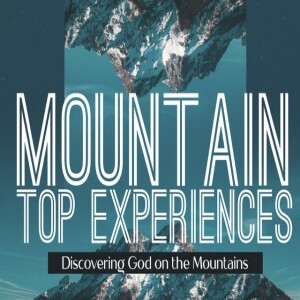
Thursday May 15, 2025
Thursday May 15, 2025
SERMON ON THE MOUNT
I want to take you to the mountain today — but not to stay there. I want us to come down from it.
You see, Jesus was a mountain man.
He prayed on mountains.
He was tempted in mountainous deserts.
He was transfigured on a mountain, crucified on a mountain, rejected, arrested, and ascended from a mountain.
And perhaps most powerfully — He taught us the Kingdom from a mountain.
We know it as the Sermon on the Mount — Matthew chapters 5 through 7.
It’s not just good advice. It’s not just a moral code.
It’s the constitution of the Kingdom of God.
Jesus begins with the Beatitudes —
Blessed are the poor in spirit, the mourners, the meek, the merciful, the pure in heart, the peacemakers, and yes, even the persecuted.
These aren’t just nice ideas.
This is how we shine.
This is what it means to be salt and light — to live in a way that shapes the world around us.
Then Jesus gets real.
He teaches that the Law wasn’t given for behavior modification — it was meant for heart transformation.
Anger? That’s the root of murder.
Lust? That’s the seed of adultery.
He’s not just after clean hands — He wants a pure heart.
And when someone insults you? Don’t retaliate. Love them.
Bless them. Do good to them. Pray for them.
That’s Kingdom living. That’s the narrow road.
And here’s the key:
Kingdom religion operates from the inside out.
If you’re giving, praying, or fasting — let it be done in secret.
Not for applause — but for the eyes of the Father.
Because His reward is better than any platform.
Jesus also said:
Don’t worry about your life.
Seek first the Kingdom — and trust your Father to provide.
Worry is a symptom of misplaced trust.
But prayer anchors us in His goodness.
And then… Jesus ends His sermon with a decision:
Will you build your life on rock… or on sand?
And here’s what I love:
Right after Jesus says that, He comes down the mountain.
And what does He do?
He touches and heals a leper — a man nobody else would go near.
The first act after the greatest sermon ever preached…
is compassion.
Because Kingdom living isn’t just about what you know — it’s about what you do.
Jesus touched the untouchable.
He said, “I am willing. Be clean.”
That’s the heartbeat of the Kingdom.
We’re not meant to admire Jesus’ words from a distance —
We’re called to embody them up close.
So let me ask you today:
Are you building your life on the rock — on obedience to Jesus?
Are you coming down from the mountain to bring hope, healing, and mercy into messy places?
Do you trust not just in Jesus’ power to restore… but in His willingness to do it?
Friends, the Kingdom doesn’t stay on the mountain.
It comes down… and it touches the world.
Let’s go and do likewise. And remember: your life, built on the Rock, is meant to bring healing wherever your feet take you.
Until next time — walk in grace, walk in power, and come down from the mountain.
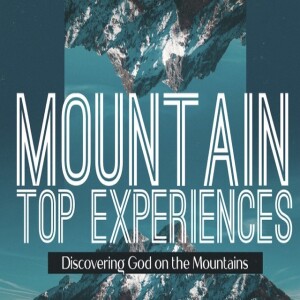
Thursday May 08, 2025
Thursday May 08, 2025
MOUNT CARMEL
So we are going to take another look at another mountain in the Bible. Let’s explore the sacred spaces of Scripture and the spiritual battles that still echo today such as one of the Bible’s most dramatic stages—Mount Carmel.
Mount Carmel wasn’t just chosen for Elijah’s showdown with the prophets of Baal because it was scenic—it was sacred. This was a contentious mountain, a place of spiritual tension where Yahweh was constantly challenged by false gods. Known for its lush vegetation, Carmel—literally meaning “garden”—was considered holy by many ancient cultures. It was called the “Holy Head” by Egyptians, and the Assyrians called it “the mountain of Baal of the promontory.” Pagan rituals to gods like Adonis and Baal were common, especially because this ridge seemed blessed by the rain they claimed to control.
So when Elijah called for a showdown on Carmel, it wasn’t random. It was enemy territory. Baal’s turf.
But before the fire fell, God first took Elijah through a season of preparation. Remember? First Kings 17—“Go hide yourself.” Chapter 18—“Go present yourself.” That’s the rhythm: hiding, then confronting. We all go through those seasons. And in the hiding, we’re tested, shaped, and reminded—we cannot force the fire. We must wait for God’s timing.
When Elijah finally meets Ahab, he’s labeled the “troubler of Israel.” That’s often how it goes—God’s people get blamed for the trouble that sin actually causes. Elijah turns it back: “No, you’re the troubler. You’ve abandoned Yahweh.” That’s the moment of truth. And so, a challenge is issued: two altars, two sacrifices, and one test—let the God who answers by fire be God.
But when Elijah turns to the people, he asks the question we all have to face:
“How long will you limp between two opinions?”
That word limp is also translated dance—as in, dancing around the altar of Baal. Playing games with worship. One foot in, one foot out. And what’s the response from the crowd? Silence. Because silence is easier than decision. But silence is not neutral—it’s compromise.
So Baal’s prophets go first. They dance, they shout, they cut themselves. Nothing. No answer. Why? Because Baal can’t speak. He can’t see. He can’t hear. He’s not real. He’s just a reflection of human effort and religious hype.
Meanwhile, Elijah rebuilds a broken altar. That’s important. Worship begins not with performance, but with restoration. And when the fire of Yahweh falls, it’s not a flicker—it’s consuming. It licks up the stones, the sacrifice, even the water. It’s the kind of fire that only comes down—not something we stir up, but something God sends down in power.
This story isn’t just about Elijah versus Baal. It’s about the decision every generation must make: Who will we worship? There’s no room for divided hearts. Not in Elijah’s day. Not in ours.
So here’s the call:
Stop limping.
Choose this day whom you will serve.
And let’s rebuild the altar—not with hype or noise—but with surrendered hearts, ready for the fire of God to fall again.
⸻
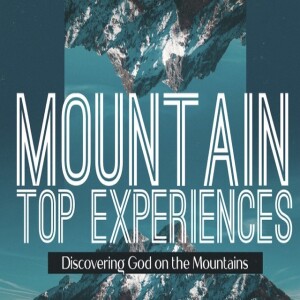
Thursday May 01, 2025
Thursday May 01, 2025
MOUNT SINAI
Today, we’re climbing a mountain — not just any mountain, but Mount Sinai — the place where God’s presence thundered, and His covenant was revealed.
So here’s the big question: where is the real Mount Sinai?
Well, no one knows for sure. Scholars suggest different locations — from the Sinai Peninsula to northwest Saudi Arabia. But the real question isn’t where Sinai is… it’s what happened there, and why it matters to us today.
Let’s rewind. Mount Sinai is where Moses first met God in the burning bush. That bush wasn’t consumed — a powerful symbol of God’s presence: holy, intense, yet sustaining. God tells Moses, “Take off your sandals, for the ground you’re standing on is holy.” Sinai teaches us this: God’s presence transforms ordinary ground into holy ground — and God still calls us to reverence today.
Fast-forward three months after Egypt. God brings Israel to this mountain — not just to give rules, but to say: “I carried you on eagle’s wings to bring you to myself.” God’s goal wasn’t just freedom from Pharaoh, but relationship with His people. That’s still His desire — not just to save us from sin, but to bring us close.
Then came the Ten Commandments. Not just laws, but a mirror to reveal the human heart. They expose our idolatry, our misuse of God’s name, our restlessness, and how we treat others. But they also show us something deeper — our need for a Savior.
Because even as Moses is up on the mountain receiving God’s word, the people below are already breaking it — building a golden calf, falling into chaos. God is furious. But Moses steps in as a mediator, pleading: “Forgive them… or blot me out.” That’s the heart of a true leader — and a glimpse of the heart of Jesus.
But Moses, as great as he was, couldn’t ultimately save the people. That’s why we need Jesus, the greater Mediator. Hebrews 3 tells us that Jesus is more faithful than Moses. Hebrews 12 says we’re no longer coming to a mountain of fear — but to a mountain of grace, where we can now boldly approach God’s presence through Christ.
So what’s the takeaway from Mount Sinai?
1.Take God seriously. His holiness hasn’t changed.
2.Remove the idols. Even good things become bad when they become ultimate.
3.Hold fast to Jesus. He passed every test. He’s our Mediator. He invites us into God’s presence — not with fear, but with boldness, mercy, and grace.
Let’s not live like Sinai never happened. Let’s live like Jesus finished what Sinai began.
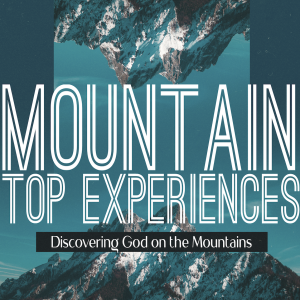
Monday Mar 17, 2025
Monday Mar 17, 2025
MOUNT ARARAT
So, today I want to begin a series of messages from the significant mountains in the Bible.
The first of those mountains are the two peaks of Mount Ararat where it is biblically understood that Noah landed the ark in this mountainous region.
Mount Ararat is what is considered to be two volcanic peaks in the extreme territory of eastern Turkey very close to the Iranian border. The Mountain range itself is about 25 miles in diameter, and the larger of the two peaks reaches almost 17,000 feet above sea level while the other peak reaches about 13,000 feet above sea level.
In 1829, a German explorer made the first successful ascent to the mountain, and since then there have been many explorers in whom now believe that they have sighted the remains of Noah’s ark, his house, and the altar he built unto the Lord.
When you think about Noah’s ark, you have to think about the flood or what many call the “Deluge”.
Two things I want to emphasize:
#1. The Flood was IMMINENT.
The skies were clear overhead, the sun was rising and setting
As Jesus said, "Men were marrying and giving in marriage," (Matthew 24:38b).
Business was going on as usual and there were no signs of impending judgment, much less rain and stormy skies.
God gave no forecast, no thunder, no rain drops, other than the ark.
The people rejected and neglected the warnings from a foolish old man and his family building that boat.
#2. The Flood was IRREVERSIBLE.
Men and women and children would lose their lives.
Entire generations of families would be wiped off the earth.
The earth itself would be forever shaped by this massive force of flood waters.
Nothing would ever be the same and Everyone perished except for Noah and his family.
Fossil records indicate massive volcanic eruptions; changes in climate and shortened life spans are all a result from the Flood. The Earth would forever be changed…
Noah’s experience walking out of the ark must have been tragic and disheartening. It was desolate, without life.
Quote - Dr. Henry Morris
The lands that had once teemed with animals and people and lush vegetation had been replaced by a desolate wilderness. The air which formerly was warm and gentle now moved in stiff and sometimes violent winds, and there was a chill on the mountains slope where the Ark rested. Dark clouds rolling about the sky, which had once been perpetually and pleasantly bright, seemed to threaten more rains and a recurrence of flood conditions. Scattered around on the land surfaces were occasional rotting carcasses and skeletons of the animals and people doomed in the waters of the Flood, a vivd reminder of the ungodliness of the antediluvian world and the fate from which God had delivered the survivors.
What Noah saw didn’t stop him from his second building project: An altar unto the Lord.
Noah took the very best of the livestock and offered them unto the Lord.
Noah’s altar of worship released an aroma that inspired God to make A Covenant of Promise upon the Earth.
The Impact of the Noahic Covenant:“God Establishes a New Beginning on the mountains of Ararat”
God would eventually restore Noah and his family, and the earth would once again be filled with Life. Mount Ararat points us to the value that God places on human life, specifically the kind of life that is meant to reflect His glory and His image. When we live lives of obedience as Noah did, we find favor with God, and He is able to bring us through the storm landing us on a mountain of new beginnings, of second chances.
This mountain speaks of the nature of our God. A God of Second chances. This would not be the last time God would give humanity another chance, for the Bible is full of second chance stories just like this…He is not done pouring out grace and mercy, God’s judgment is real and terrible and something that no one will ever want to experience, so that’s why grafted into the biblical story is a message of Mercy triumphing over judgment, where God grants the grace you need to get a second chance…
Are you feeling like God has forgotten you?
Has God been silent in your storm?
Do you sense devastation beyond repair?
God values your life so much He chooses not to forget you, or His promise of eternal life to those who believe in His Son Jesus Christ. He will not revoke His promise of faithfulness in your situation…
GOD WANTS TO ESTABLISH A NEW BEGINNING FOR YOU!
God is for you and He wants to bring a new beginning to your life…one of Mercy triumphing over judgment…one of Promises fulfilled…one where God’s blessing makes a big deal out of your life…
He wants to SUSTAIN you. PROTECT you.
He wants you to ENJOY your life.
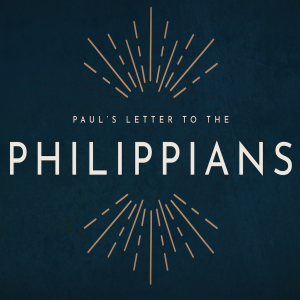
Monday Jan 20, 2025
Monday Jan 20, 2025
The Humility of Christ — Philippians 2
Today, it is a common practice for some that everywhere we go, we are compelled to flip our phones around and take a selfie. Innocently, selfies are a fun way to share your thoughts, feelings and experiences. But, according to Google, selfies have become more lethal than a shark attack. People have fallen off of cliffs, drowned in the water, injured by vehicles, even Japan has banned selfie stick on their railway to avoid electrocution. Selfies are a fun way to show others how you want to be seen but it is also a way to preserve, present and promote yourself.
You might not be the person who regularly takes selfies, but you most certainly live in a world that values individual freedom, expression, independent decision making, and self-inspired, and self-motivated commitments. On the other hand there are times like these LA fires that JFK’s famous quote from his inauguration speech on January 20th, 1961
“Ask not what your country can do for you, ask what you can do for your country”
Inspire people to humbly and sacrificially give and reach out to help one another in their time of need.
When Jesus came to the earth, this was His vision for community. He did not come to inspire an individualistic, self-promoting, self-isolating, shallow definition of connections with other people, driven by a “what’s in it for me attitude.
Christ came to UNITE us through the submission of one self into a fellowship, partnership, a community, a shared participation built and fostered through the power and fellowship of the Holy Spirit.
This is what the Bible calls “Koinonia” a deep divinely inspired community of faith. (Acts 2:42-47)
This was the example of the early church.
In the first few verse of Philippians 2, Paul gives a compelling vision of Koinonia to ignite and unite the church at Philippi. Paul uses terms to describe that church as a place of “consolation, comfort, affection. Love and mercy”. He talks about how there is “fellowship of the Spirit”. I believe that this a place where the Holy Spirit is at work. Where the Holy Spirit is bearing fruit. And where the Holy Spirit is empowering people with Spiritual gifts. (Eph. 5:17-21; Gal. 5:22-26). This is the vision of what church is supposed to look like.
I share in Paul’s heart for Koinonia, for a fellowship where fearful and timid people find boldness where those who are empty and without purpose find significance. Where Humility and Sacrifice replaces selfishness and pride. Where Anxious people find a place to lay their burdens. Where those held captive in bondage to lust, greed are freed by the power of the Spirit! Where broken relationships can learn to trust one another again. Where angry and bitter people find the strength to forgive and exercise grace and mercy. Where the lies of the enemy are silenced with the truth of God’s word. And where people will join together to form the body of Christ and be the Light of the World and the Salt of the Earth. This is Koinonia.
This is the place where Psalm 133 says, God pours out His Favor and His Anointing. Church becomes a place that is blessed, pleasant, favorable, anointed and just the kind of place you want to be, not a place you want to avoid.
But, the #1 enemy of Koinonia is self-interest driven by pride, envy, jealousy, self-ambition, self-interest, self-preserving, self-promotion. It’s this self-inspired activity that James says confuses the church and is the source of every kind of evil.
So what is the Catalyst for Koinonia? It is what the theologians call “Kenosis". Kenosis means “ to empty one self” and this is what Jesus Christ does for us. He mindfully, voluntarily chooses to EMPTY HIMSELF of His divine privileges, sacrifice His life, and obediently humble Himself to the point of death, even dying on a Cross. Paul says, if you want Koinonia, this is what it’s going to take.
these verses were not primarily given to explain a system of theology but rather to illustrate the system of fellowship.
The result of Christ’s humility and obedience was His exaltation that placed Him right back at the right hand of the Father…where every knee will bow and every tongue confess…but did He do this to show off?? I don’t think so…
He died to give us a new way of living through Love…not loving yourself, but loving God and loving others…It is the night that Jesus Christ was betrayed that His humility and obedience would be ultimately tested… it was on that night He would share with His disciples in a “koinonia” style last Supper…He would share in the bread and the wine by saying this is my body “given for you”, this is my blood “poured out for you”…this isn’t so I can get back to the throne, this is so that you can have access to the throne! This isn’t so that I can get back to my living room in heaven, but rather its so that I can go and prepare a mansion for you…so that where I am, you may be also.
Jesus would go on that night not only to die a criminal’s death but He would go on to experience the Cross that was meant for you and me…the Cross that represents our sin, our shame, our guilt, our ugliness…all of that He took upon Himself, and sacrificed His life, so that we could have life evermore!
THEREFORE, Paul says…work out your own salvation with fear and trembling. Stop complaining, stop disputing. Be blameless, be harmless. Don’t be a complainer, be a comforter. Don’t aggressively dispute and disagree, but rather seek affection and mercy. Strive for that one mind, the mind of Christ. Have an attitude that says “I don’t want to mess this thing up!”
Paul says we are to be Light Bearers by holding on to the Word of Life and then poured out as a drink offering. We are not meant to just take communion, we are meant to live Communion. Communion was meant to become an example of our own Kenosis. Yes Jesus did what we could not do for ourselves, but it was meant to be a catalyst an inspiration to ignite the Unity of Koinonia to a world that is so desperately divided and on its way to destruction. We are now the body of Christ, symbolized by the bread, we are now the drink offering, symbolized in the cup. We are the His precious saints covered in the blood of Jesus being poured out for all mankind to find reconciliation and redemption in God.
The Vision of God’s People is what the Bible calls “koinonia” built on the “kenosis” of Christ. In other words, it’s unity built through humility. Let’s be submitted not in some kind of authoritarian model, but submitted to the responsibilities and the roles that the Holy Spirit has given each of us. Be the person God created you to be, and submit to His will and plan for your life. That’s your kenosis. Be a person who is willing to lay down your time, your talent, your efforts. No greater love is this than when a man lays down his life for His friends. This is your kenosis. And It’s your kenosis together with my kenosis, that will build the type of Koinonia that Jesus and Paul describes for us. It is preparing us for the day when every knee will bow and every tongue will confess, that every tribe, every nation, every person who chooses to follow Jesus will experience the most glorifying community ever, called the Kingdom of God.
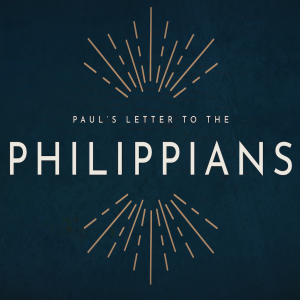
Monday Jan 13, 2025
Monday Jan 13, 2025
Philippians 1 — Confidence
Confidence is a quality that when built into our lives, we can accomplish life goals and build character against the odds. Confidence can be a skill, a source of motivation, a test of integrity, a tenacious determination to get back up and keep moving forward.
Oftentimes confident people are thought of as those who drive action, inspire change and impact history. Dr. Martin Luther King Jr. or Harriet Tubman who were confident in what they believed could be true and risking their lives to bring freedom to those held captive by injustice and slavery.
But confidence does not come unless there is a need for it. Confidence isn’t the belief that we won’t meet obstacles but it is recognizing that difficulties are an inescapable part of life, that we need confidence to face. Although, confidence is not the answer by itself, rather, it is where, what or who you place your confidence in that really matters.
Paul in Philippians 1, shares four ways in which he builds confidence.
First, Paul was Confident in the GOOD WORK that was started and was being completed in Christ Jesus. (1:6;9;) for this Paul strengthens his faith in the promise of the process. The good work is when the Holy Spirit is causing your love to abound, your ability to prove that which is excellent and to live with sincerity and without offense. Paul says I am confident that God is making you a more loving, discerning, and even more being marked with integrity of character.
Second, Paul was Confident in the PARTNERSHIP in the Gospel (v. 7-8; 24-25) This deepened his sense of community built on the grace of Christ. Paul’s heart for the Philippians church was marked by the “affection of Christ”. He wanted to convey his unconditional love, his willingness to forgive, his empathetic compassion, his undying commitment, and the eternal nature of his relationship with them. Also, Paul understood the “Better Together” principle. (v. 24-25; 27) He was confident that while together they were better. He’s confident that he would remain with them as long as he was needed for their progress and he was confident that they would do the same. Even though our confidence is not putting trust in people, it is still trusting in the grace of Christ working through people.
Third, Paul was confident in the GOSPEL PREACHED. (v. 12-18) for even in chains boldness to preach was growing even more. As you read the stories of the early church, it is obvious that persecution advanced the Gospel. And here now, Paul is in chains, ready to be sentenced to death and this has inspired courage in many to preach the Gospel with even more boldness. Paul is confident that this message will not be squashed. He is confident that this Gospel will change the world. He is confident that nothing, not even man’s own selfish ambition can stop the transformation and salvation of people’s hearts through the Gospel.
Lastly, Paul was confident in LIFE AFTER DEATH. (v. 19-22) for Paul had a magnified eternal perspective of the glory of Christ. It is widely held that Paul was beheaded for his faith. Imprisoned, persecuted, falsely accused, and yet he was confident that in death, life with Christ would be fully experienced. Paul told Timothy, I am already being poured out like a drink offering, for I have fought the good fight of faith and finished the race, and have kept the faith. Now I have a crown of righteousness in which the Lord has prepared and will award for me. (2 Tim. 4:6-8) Paul is one of the men who are the cloud of witnesses that help us to lay aside every weight, every sin, every hindrance, and run with endurance the race that is set before us…for even Jesus who is the author and finisher of our faith, had joy that was set before him, and endured the cross with confidence, despising the shame, and would eventually sit down at the right hand of the throne of God. (Heb. 12:1-2)
So, how do you gain the confidence that Paul had?
#1. STRENGTHEN YOUR FAITH in the Promise of God’s Good Work. be confident He is working IN you.
#2. DEEPEN YOUR CONNECTION to Spiritual Community. be confident He is working AROUND you.
#3. PREACH WITH BOLDNESS in the face of Persecution be confident He is working THROUGH you.
#4. MAGNIFY YOUR PERSPECTIVE OF CHRIST in life and in death.be confident He is working FOR you.


